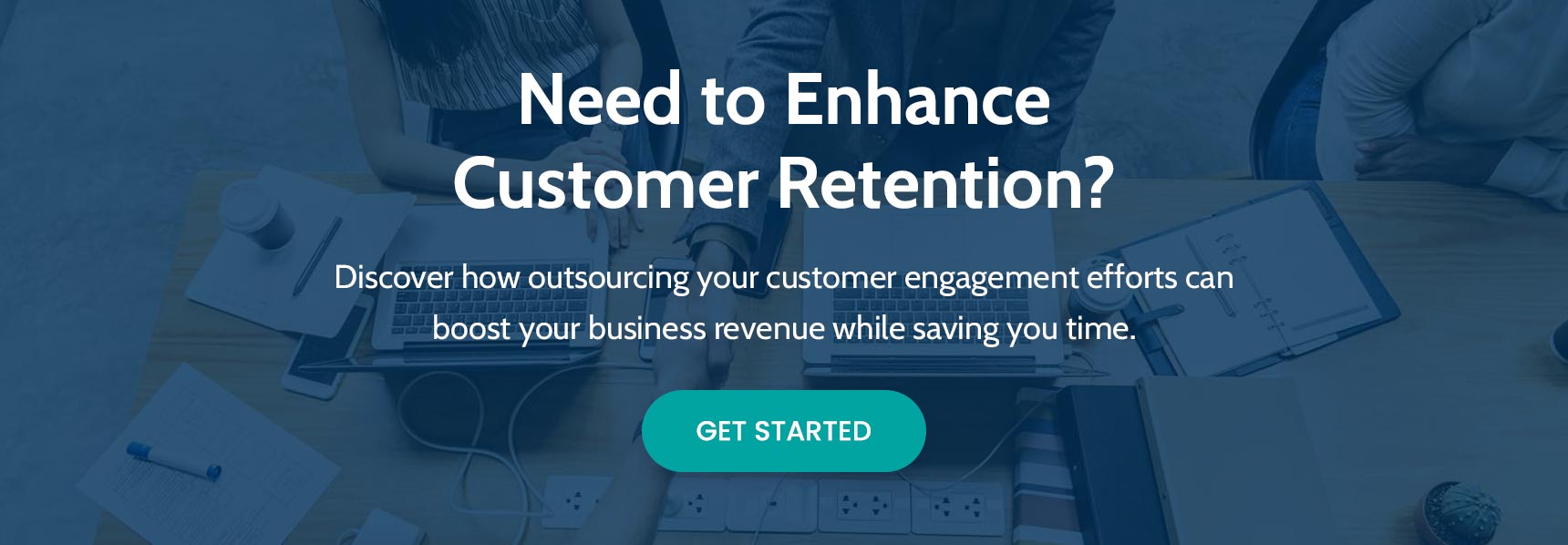Boost customer loyalty with proactive service
It’s no secret that customer service is a core component of any successful business. But are you delivering proactive service or offering the standard reactive service?
To maximize the results of your organization’s customer experience strategies, it’s important to understand the advantages that proactive service offers. Addressing customers’ potential issues proactively can lead to improved sales, enhanced online reputation, and increased brand loyalty.
At Radius Global Solutions, our contact center agents are empowered with the resources and technologies to deliver the predictive service that customers crave. Read on to discover what this means for your business and how it affects the customer experience.
The difference between proactive and reactive customer service
It’s no secret that customers expect exceptional service from businesses. In fact, research shows that 93% of customers are likely to make repeat purchases with companies that provide excellent customer service. Additionally, 78% of consumers will stay loyal to a business after a mistake if the service is excellent.
One of the best ways to offer excellent service is to be proactive rather than reactive. Here’s what that means:
- Proactive or predictive customer service involves identifying and addressing issues before they become problems, anticipating customer needs, and reaching out to customers to offer assistance.
On the other hand, reactive customer service is a response to customer inquiries or concerns after they arise
Proactive customer support is becoming more important by the day. Today’s customers appreciate businesses that anticipate their needs and provide solutions before they even have to ask.
But how can your company provide this level of service? Also, what are the disadvantages of sticking to reactive service? Find out below.
The pitfalls of a purely reactive customer support approach
A purely reactive customer service approach may seem good enough for many companies. That’s how organizations have handled customer support for many years, and making changes to your fundamental business operations can be daunting.
But sticking with this traditional support method can lead to a variety of potential pitfalls:
- Poor customer experience: Reactive customer service puts the responsibility on the customer to solve problems with your product or service. It requires the customer to reach out first, which can be inconvenient and frustrating.
- Delayed resolutions: When companies wait for customers to contact them about an issue, delays can lead to customer dissatisfaction and damage to the company’s reputation.
- Inefficient service: Only responding to problems after they’ve occurred can lead to a backlog of issues that need to be resolved. This strains your resources and often leads to longer resolution times.
- Reduced customer loyalty: When customers constantly have to reach out for support, they may seek a more convenient alternative.
Without proactive measures to anticipate and address customer needs, your brand risks appearing disinterested in your customers’ overall experience. This can prompt customers to seek out competitors that offer more attentive, proactive service.
The benefits of proactive customer service
A reactive approach to customer service can result in missed opportunities for cementing customer loyalty and fostering long-term relationships. On the other hand, a predictive customer service strategy can greatly enhance customer satisfaction and boost employee productivity.
By implementing predictive customer service strategies and offering proactive support, your business can enjoy several benefits:
- Elevate the customer experience, helping to improve customer satisfaction (CSAT) rates
- Improve customer retention by reducing the number of times customers need to reach out
- Enhance your brand’s reputation as a proactive problem solver
- Offer a competitive advantage with the resources to tackle issues before they negatively impact customers
- Reduce support costs by preventing issues from escalating and requiring more resources to resolve
- Lower employee attrition by minimizing the stress associated with constantly putting out fires and handling unhappy customers
The benefits of proactive customer service are clear, making it a worthwhile investment for any business looking to stay relevant and successful in a competitive market.
Powering proactive support with customer service technologies
Now that we’ve established the benefits of proactive support, you may be wondering how can your business get started. Advanced support technologies make it easier for your team to proactively address customer needs and concerns.
Your business can gain real-time insights into customer behavior by leveraging tools such as:
- AI chatbots
- Self-service portals
- Interactive FAQ pages
- Analytics platforms
As a result, you can answer questions before they even pop into your customers’ minds. These self-service technologies are particularly effective when customers can easily access them.
When onboarding new customers, be sure to include links to these self-service resources in your standard welcome email. This empowers customers to find solutions on their own, minimizing their dependence on support teams and enhancing their overall experience.
With the right customer support technologies in place, your company can stay two steps ahead of the competition.
Deliver predictive support with an outsourcing provider
Providing excellent customer service is critical in today’s business environment. With more and more customers expecting instant results, it’s essential to be proactive when it comes to addressing their needs.
But implementing the technologies needed to provide this level of service requires time, money, and resources that your business may not have right now. That’s where our team at Radius comes in.
Our contact center has everything you need to provide proactive service to your clients. Reach out to us today to learn more about how our contact center outsourcing services can benefit your business.




